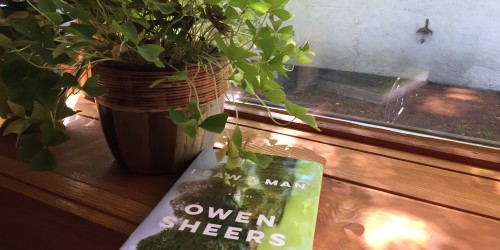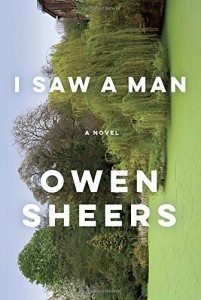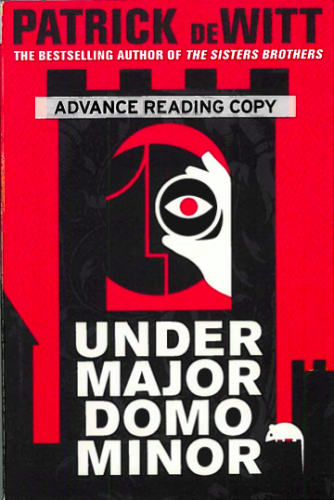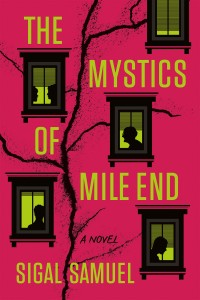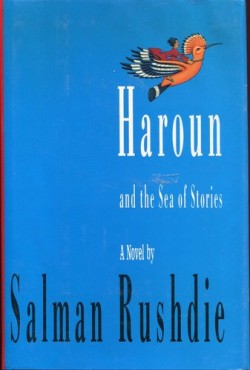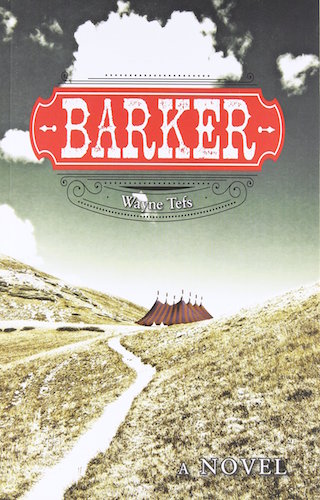Visiting Vancouver with a toddler or just trying to figure out what to do with your day? Here’s the weekly itinerary my little guy enjoyed from 15 months to 2 years.
Monday
8-9:30 Get some coffee! Try the JJ Bean on Granville Island or grab some breakfast snacks or grilled cheese sandwich in the market and watch the pigeons outside or walkaround inside. Usually first thing in the morning is pretty quiet during the winter months. We also like to play at the kids park near the Kids Market on Granville Island or watch the ducks.
9:30-12:30 Granville Island Playgym (or Mini Gym) at the Falsecreek Community Centre is especially great for rainy day toddler activities.
Quote: Parent and Tot Gym at Granville Island
Mon, Wed, Fri, Sun 9:30am to 12:30pm
False Creek Community Centre (Google map)
1318 Cartwright Street (enter Granville Island and turn right at the Kids Market, continue along the road to the Community Centre).
$1 drop in
Ages 0-5
Includes play toys, riding toys, balls, bouncy castle
For up-to-date info: Search vancouver.ca False Creek Recreation Programs
Lunch and Nap on Granville Island and then play at the waterslide in the afternoon or walk along the seawall to either west to Kitsilano Beach Park or east to Charleson Park
Need dinner in Kits? The Boathouse usually has space for kids or the food stand offers beach fare like burgers and hot dogs. Up Arbutus St. is The Nook, which isn’t great for dining with kids but does do take out. The Sunset Grill can usually accommodate little ones. Along 4th Ave is Sushi Bella or Indian Oven. And of course on 1st at Cypress St. is the mecca for kids dining, Rocky Mountain Flatbread. Nut-free. Delicious. Craft beers on tap. Play kitchen for the kids.
Panne from Heaven or the Epicurean have quick take away options. And the little corner store at 1st and Cypress is surprisingly good for produce, meats, sweets and treats.
Tuesday
Westside Family Place is a great option Monday to Thursday mornings or you can venture further afield.
Quote: Westside Family Place Drop-In $2
2819 West 11th Ave @ Macdonald St
The drop-in times may vary: http://www.westsidefamilyplace.com/drop-in/
“Play and Learn” Drop-In Hours:
Morning Drop-In: Monday to Thursday: 9:30am to 12pm (Circle Time 11:30am)
Afternoon Drop-In: Wednesday: 1pm to 4:30pm (Circle Time 2:30pm, subject to change)
The 1st visit is free and thereafter the drop-in fee is $2 per family per visit with an annual membership. Pre-paid Drop-In tickets can be purchased in bulk.
There is also Eastside Family Place and South Vancouver Family Place, depending on your location.
If you’re visiting Vancouver, I recommend renting a bike with a toddler seat at one of the shops just outside Stanley Park (at Denman & Georgia). Then you can cycle through the park, stop at the Vancouver Aquarium, and then carry on along the seawall to Second Beach or Third Beach where there are great play structures, in addition to beach access and an outdoor community pool.
- Spokes Bike Rental http://www.spokesbicyclerentals.com/
- Vancouver Trolley Company and other “hop-on hop-off” also operate through the park. Kids tend to like the old-fashion style of the Trolley Company: http://vancouvertrolley.com/tours and http://vancouvertrolley.com/tour/stanley-park-shuttle
If you head to Vancouver Aquarium, then behind is a massive park and play structure. It’s mostly for Ages 5+ up but a toddler would still find some access to the play spaces.
Quote: The Vancouver Aquarium is also good for kids 5 and up but little ones can still have fun. It’s a bit of an expensive outing if your toddler doesn’t have a long attention span.
Opening Hours are 10 am to 5 pm
Booking tickets to the Vancouver Aquarium online will save you a bit of money.
http://www.vanaqua.org/visit/tickets
$29 adults, $15 kids 4-12, free under 4
During winter hours, the quietest times to visit are on weekdays or prior to 12 p.m. or after 2 p.m. During summer hours, the quietest times to visit are prior to 11 a.m. or after 4 p.m.
Check the showtimes when you enter and go to see the shows first, then wander around. if you time it right then you can watch the show above ground first and see it from below while wandering through the exhibits.
Bring snacks.
Once you’re done at the Aquarium, venture over to the Stanley Park miniature train. There are usually activities or seasonal events as well (Easter, Halloween, Christmas)
http://vancouver.ca/parks-recreation-culture/stanley-park-miniature-train.aspx
Easter Train at Stanley Park
An alternative outing is a visit to Science World in the morning and then visit the Family Play Gym at Creekside Community Centre in the afternoon. It’s open 1:30 to 5:30 pm on Tuesdays (Check the schedule. Link below.)
Quote: Science World
$22.50 per adult, $15.25 kids ages 3-12
kids under 3 free
Open 10-5 on weekdays and 10-6 on weekends and holidays
It’s actually fun for 15 months and up. There are lights and buttons to push and the space is very kid friendly.
Creekside drop-in, open gym schedule
Family Play Gym
Monday 9:30-11:30
Tues 1:30-5:30
Wed 9:30-12:30
Thur 1:30-3:30
Fri 9:30-12:30
Wednesday
The middle of the week was never my time to experiment so we basically stuck to Family Place in the morning and afternoon. You have to pay the drop-in fee twice to attend both sessions but it’s worth it on rainy days. Otherwise, I recommend a visit to Family Place in the morning and then the Kitsilano Branch Library in the afternoon, or Kidsbooks. Both are ideal locations if baby is sleeping and you have to get out of the rain.
Quote: Kidsbooks on Broadway
9:30 to 6 most days. Location and hours: https://www.kidsbooks.ca/locations.htm
Kidsbooks on Broadway
3083 West Broadway
Ph: 604-738-5335
If you’re in the neighbourhood then Almond Park at Alma and West 12th Ave is great and often there are lots of abandoned toys to play with here.
https://plus.google.com/102031998304563513364/about?gl=ie&hl=en
Every other Wednesday at 11:30 am (doors at 11am) is Movies for Mommies at the Dunbar Theatre. Awesome popcorn.
Location and What’s Playing: http://www.moviesformommies.com/locationsweeklyscreenings
4555 Dunbar St
604-222-2991
The volume is turned down during these film screenings, there are change tables and an area to park a stroller. It’s ok if baby cries and for the most part people are very forgiving of talking toddlers.
Thursday
Thursday is swimming day. We enjoyed Aquaventures swimming lessons but if you’re just looking for some one-off pool time then Hillcrest is the place to go.
Quote: Hillcrest Pool public swim is 6 to 9:45 am. Enjoy the lazy river and pool toys for kids.
http://vancouver.ca/parks-recreation-culture/hillcrest-pool-schedule.aspx
We were also super lucky to have some great friends in the neighbourhood so Thursday afternoon was playtime at the Kitsilano Dog Beach, behind the Maritime Museum. If it was windy then playing at the Museum of Vancouver was also a fun time, and more sheltered.
Quote: Maritime Museum on Thursday nights 5-8 pm is admission by donation.
You can board the St Roche and view the other exhibits. The ship, of course, is the highlight. Adult admission is otherwise $11 so if you’re only going to wander around the ship quickly with a toddler then Thursday night is a good opportunity to do that at a donation rate.
http://vancouvermaritimemuseum.com/visit/hours-rates
And again, Thursday night pizza party at Rocky Mountain Flatbread is a recommended treat.
Friday
Best to cool your heels at the end of the week with the Playgym at Granville Island. Maybe ride the False Creek Ferries for a few stops. Beware that the rainbow boats are a different company than the blue boats. My vote is for blue because one of our friends drives the boat.
Saturday
If it’s summer time then try the Farmer’s Market at Trout Lake. There is a playstructure there, lots of picnic spots and a little sandy beach. Although swimming is hit and miss because of duck and goose poop. Jericho Beach is a better spot for toddler swims, and there’s the Jericho Sailing Centre upstairs in the club where you can get ice cream, salmon burgers, nachos, beer and other goodies. It’s open to the public and a great patio spot.
Park near Jericho at Alma and Cornwall
Sunday
Playgym. Granville Island. Otherwise relax. If you’re a foodie then the Kitsilano Farmer’s Market at the Kitsilano Community Centre is a good spot to wander. There’s an enclosed playstructure that is fun for all ages and a small water park.
Other Parks
Wobbler to Toddler Parks
- Tatlow Park off Macdonald has two play structures and the small one is perfect for wobblers. Also there is a large grassy area and little paths with bridges over the creek so there’s lots to look at too. And there are tennis courts here, which are great for kids learning to ride bikes. Although you can’t ride if there are tennis players.
- McBride Park at Waterloo also has a playstructure that is ok for wobbler to toddler.
- George Wainborn Park in False Creek, just opposite Granville Island (almost directly across from the cement plant), has a tiny park that is just up from the waterfront walkway. It’s small but perfect for littles who’ve just started walking.
- Second Beach and Third Beach have some great playgrounds and also beach or grass areas for picnics.
- Richards & Davie Street downtown has a nice little park area with lots of playstructures for kids, and some water features.
Adventures & Activities
- Maplewood Farm in North Vancouver is open 10-4 year-round and has animals and fun things for kids. http://maplewoodfarm.bc.ca/
- Check out the Vancouver Public Library site for the Central Branch storytime. And the Kitsilano Library Branch does “Man in the Moon”, which is a storytime for babies and their dads: Saturdays at 10.15 am
- Kitsilano Pool has a good, gradual decline entry which is great for toddlers. The Maple Grove pool is suppose to be even better. http://www.kerrisdalecc.com/maple-grove-outdoor-pool.htm
Other Events & Classes
- Events in Kitsilano: http://www.kitsilano.ca/
- Music Classes: http://www.westsidemusictogether.ca/
- Just Between Friends kids consignment sale: http://vancouverbc.jbfsale.com/homeView.jsp (these folks are really well organized and it’s a great big sale with clothing, toys and small furniture for kids. Totally worth attending. Some things are brand new and still in their original packaging, unopened. Most items are $2-25.
- Barefit Pre-Natal and Post-Natal workout groups are a super way to meet other friendly moms who have great advice on things to do. Chat away and get fit. http://barefitandpregnant.com/
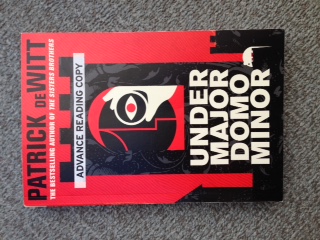
and independent booksellers like McNally Robinson.
